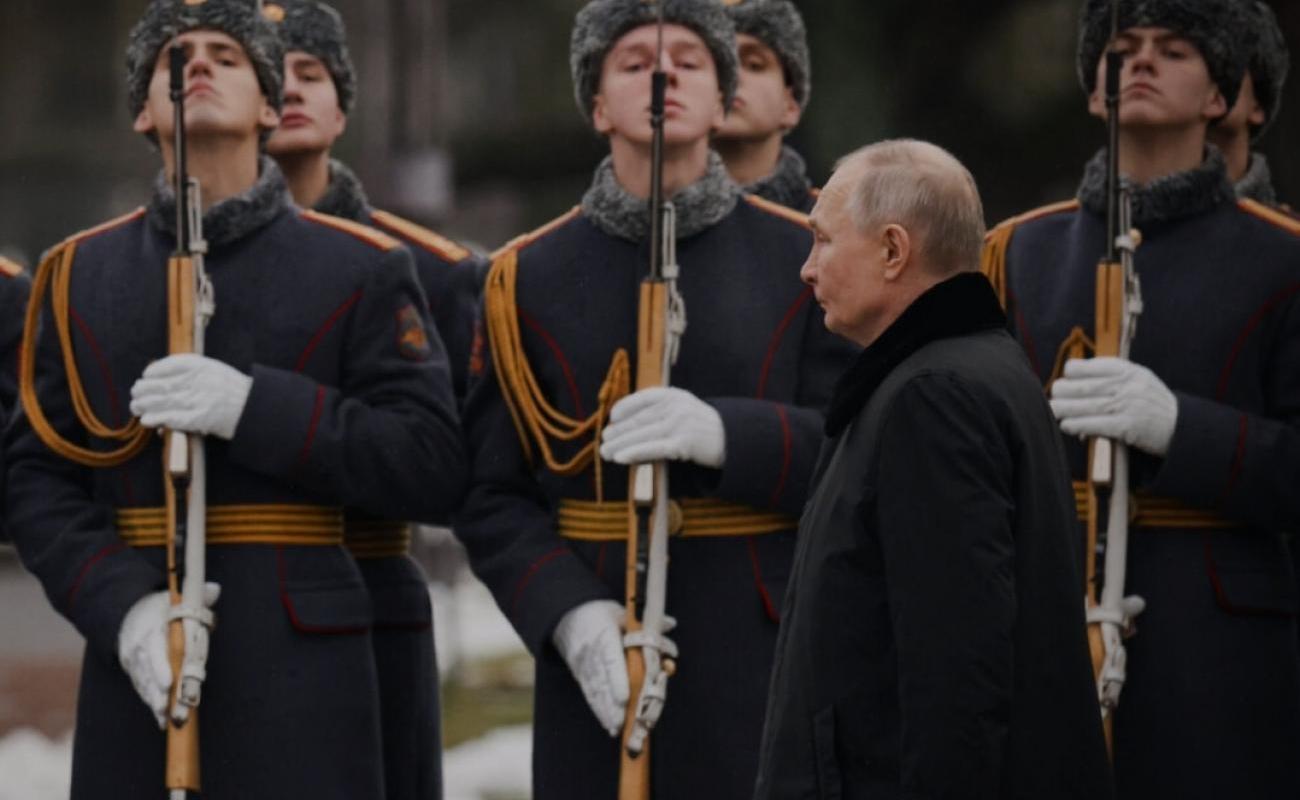Russia’s war against the West will continue until Putin tastes defeat

As speculation mounts over possible negotiations to end the Russian invasion of Ukraine, it is important to understand the nature of the war unleashed by Vladimir Putin almost three years ago. Crucially, this is not a conventional war for land that can be resolved by offering limited territorial concessions. Putin’s goals are far more ambitious. He is waging the current war in order to undermine the existing international security architecture and replace it with a new world order where a handful of great powers are able to dominate their neighbors.
Since launching the full-scale invasion of Ukraine in February 2022, Putin has repeatedly outlined his vision for a “multipolar world order” that would reverse the verdict of the Cold War and create a world divided into spheres of influence. By challenging the sanctity of borders with his invasion of Ukraine, Putin aims to remove a central pillar of today’s global security system and normalize the use of military force in international affairs. If his efforts are perceived as successful, this will set a disastrous precedent that will embolden authoritarian regimes around the world.
Putin’s dream of establishing a new world order is reflected in his push for bilateral talks with the United States to discuss the fate of Ukraine and Europe without Ukrainian or European participation. He wants to demonstrate that sovereignty is negotiable and convey the message that some nations are more equal than others. The consequences of this approach could be catastrophic for both Ukraine and Europe as a whole.
The world order Putin hopes to usher in would be governed by the laws of the geopolitical jungle and defined by insecurity and aggression. Armed conflicts would proliferate around the world as previously accepted rules of international relations were replaced by the overriding principle that “might is right.” The unprecedented global economic prosperity of the past three decades would also be threatened amid mounting barriers to trade and record levels of defense spending. The only obvious beneficiaries would be nations like Russia that seek to embrace revisionist or expansionist agendas.
The international security situation is now so grave and has escalated to such a level that it can no longer be resolved by appeasing Russia or seeking some kind of compromise peace. Instead, Russia must lose in Ukraine, and must be seen to lose.
At present, that is not the case. On the contrary, Putin is more confident than ever of victory and sees no reason to end the war. He is projecting strength around the world and is successfully building a coalition of fellow authoritarian powers including China, Iran, and North Korea, who all provide support for the war in Ukraine and share Moscow’s objective of overthrowing the current world order.
On the home front, Putin has succeeded in shifting the Russian economy onto a wartime footing, and has found new partners to compensate for the collapse in ties with the West. He is openly preparing for a long war and is counting on a lack of Western resolve to confront him.
In order to stop the war, Putin must be persuaded that continuing the invasion of Ukraine will lead to disaster for Russia. This requires a range of measures designed to weaken Russia’s position both economically and militarily.
Russia’s economic outlook is already worsening as a result of the war and could become far more serious if Western leaders take the necessary steps. There is an obvious need for greater coordination between the United States, UK, EU, and other countries engaged in sanctioning the Russian war effort. Implementation of existing sanctions remains inadequate, while tougher measures are needed to target intermediaries./Atlantic Council/
